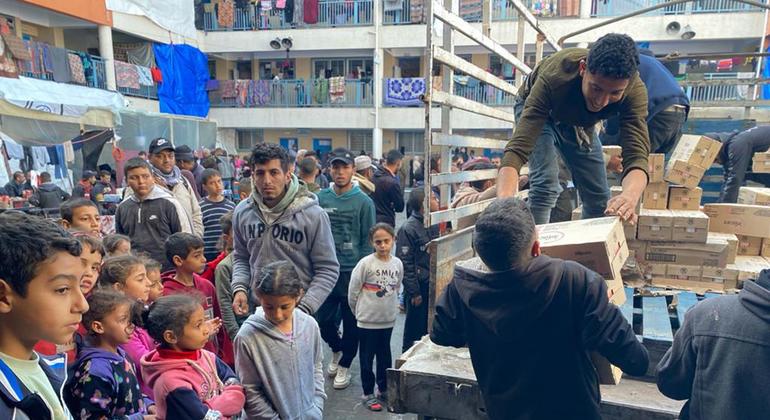The Romanian Church, at the recent session of the Holy Synod decided to establish its jurisdiction on the territory of Ukraine, intended for the Romanian minority there.
The February 29 decision said: “to bless, encourage and support the initiatives of the Romanian Orthodox communities in Ukraine to restore communion with the Mother Church, the Romanian Patriarchate, through their legal organization in a religious structure called the Romanian Orthodox Church in Ukraine.”
In Ukraine live approx. 150,000 ethnic Romanians, according to the 2001 census, mostly concentrated in the Chernivtsi and Transcarpathian region, which borders Romania to the south. In ecclesiastical terms, they are part of the Chernivtsi-Bukovinsk diocese. The most famous cleric of this community in the public space is Banchensky miter. Longin (Zhar), an ethnic Romanian who has made many video appeals to Romanian authorities over the past year, asking for “protection for Romanian priests” in the area.
In addition, the Romanian Synod addressed the situation in the Moldavian Metropolitanate of Chisinau, which is under the jurisdiction of the Moscow Patriarchate, saying that it considers canonical those clerics who joined the Bessarabian Metropolitanate of the Romanian Orthodox Church there and were therefore placed under interdicted or overthrown by Metropolitan Vladimir of Chisinau.
And more specifically, the decision of the Romanian Synod on Moldova states: “affirms that all Romanian Orthodox clerics and their passoms from the Republic of Moldova who return to the Bessarabian Metropolis are canonical clergy and blessed believers and that any disciplinary sanction against them of on the grounds that their affiliation to the Romanian Orthodox Church is considered invalid, according to Synodal Decision No. 8090 of December 19, 1992.”
Already at the end of 2023, the Romanian Patriarchate issued a statement on the occasion of the deposition of six local priests by the Metropolitan of Chisinau: “Historically and canonically, the Romanian Orthodox Church, through the Metropolis of Bessarabia, is the only ecclesiastical institution that has had and continues to have a canonical jurisdiction over the current territory of the Republic of Moldova. Therefore, the actions of the Synod of the self-styled “Moldovan Orthodox Church” or “Chisinau and All Moldova Metropolis” contradict the very canons of the Church and the history of ecclesiastical jurisdiction to which they hastily refer. a structure in Chişinău becomes absurd and ridiculous with its name, assuming that it will have authority in a region with an Orthodox history, culture and identity deeply anchored in Romanian spirituality. This unfair claim creates an image of disobedience to church canons and laws that govern The Orthodox Church The Metropolis of Bessarabia never allows Romanian priests from Bessarabia to be threatened or coerced just because they live their faith and love for their brothers. Any attempt at coercion or intimidation is unacceptable and the Bessarabian Metropolis will continue to fight to protect the religious freedom and cultural identity of its clergy and believers. Therefore, we encourage all those who feel constrained by the Russian dioceses to have the courage to come out of this slavery and return to the tradition and fellowship of the Romanian Orthodox Church.”














